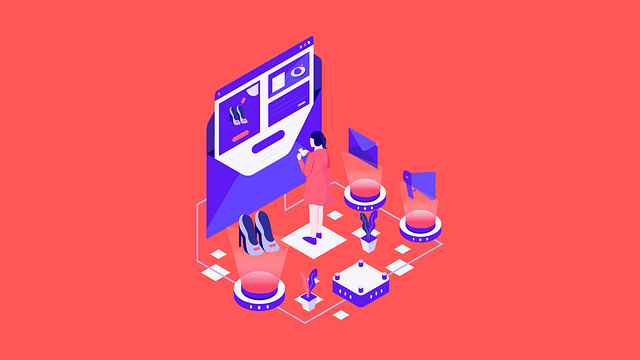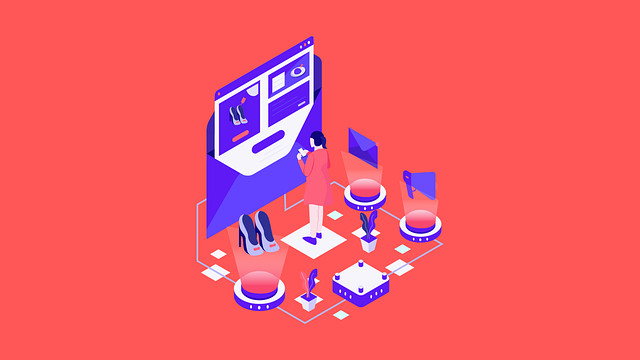AI chatbot-driven catering orders are transforming food service businesses by streamlining customer interactions, managing large-scale events, and predicting preferences. These intelligent virtual assistants leverage machine learning to analyze data for accurate delivery time predictions, optimizing logistics and enhancing customer satisfaction. While challenges exist regarding data privacy and connectivity, AI integration in catering offers significant advantages like personalized recommendations, efficient order processing, cost reduction, improved profitability, and maximized revenue potential.
“Revolutionize your fast-casual restaurant operations with AI chatbot-driven catering orders. This cutting-edge technology promises to transform delivery time predictions, ensuring timely and efficient service. In this article, we explore the seamless integration of AI chatbots in catering orders, their role in enhancing prediction accuracy, and the multifaceted benefits and challenges of AI-driven fast casual delivery systems. Get ready to navigate the future of catering with precision and speed.”
- Understanding AI Chatbot Integration in Catering Orders
- The Role of AI in Enhancing Delivery Time Prediction Accuracy
- Benefits and Challenges of AI-Driven Fast Casual Delivery Systems
Understanding AI Chatbot Integration in Catering Orders

The integration of AI chatbots in catering order management is transforming the way food service businesses operate, especially with the rise of delivery services. These intelligent virtual assistants are designed to handle customer interactions, take orders, and provide instant support, thereby streamlining the entire process. When it comes to catering, where large-scale events and diverse menus are involved, an AI chatbot can offer numerous benefits. It can efficiently manage countless order inquiries, ensuring accurate and timely responses, even during peak hours when human agents might be overwhelmed.
AI chatbot-driven catering orders enable businesses to predict customer preferences, suggest customized options, and provide real-time updates on delivery times. By leveraging machine learning algorithms, these chatbots learn from past interactions and adapt to individual customer needs. This level of personalization not only enhances the overall dining experience but also allows for more precise delivery time predictions, ensuring customers receive their food fresh and hot at the promised hour.
The Role of AI in Enhancing Delivery Time Prediction Accuracy

The integration of Artificial Intelligence (AI) in delivery time prediction for fast casual caterings is transforming the industry. AI chatbots, powered by machine learning algorithms, analyze vast datasets from previous orders, weather patterns, traffic conditions, and more. This enables them to provide highly accurate forecasts, ensuring that catering orders are delivered promptly. By leveraging these advanced technologies, businesses can optimize their logistics, improve customer satisfaction, and gain a competitive edge.
AI chatbot-driven systems offer numerous advantages over traditional methods. They continuously learn and adapt based on real-time data, allowing for dynamic adjustments to delivery routes and timelines. This level of personalization and flexibility leads to reduced errors, minimized delays, and ultimately, enhanced customer experience. With AI at the helm, catering companies can efficiently manage high-volume orders during peak hours, ensuring that every client receives their food fresh and on time.
Benefits and Challenges of AI-Driven Fast Casual Delivery Systems

The integration of AI in fast casual dining delivery systems offers a myriad of advantages. AI chatbot-driven catering orders can significantly enhance customer experience through personalized recommendations, efficient order processing, and real-time updates. This technology streamlines operations by predicting demand, optimizing routes, and automating inventory management, thereby reducing costs and improving profitability for restaurants. Moreover, it enables dynamic pricing based on market conditions and demand fluctuations, maximizing revenue potential.
However, challenges exist in implementing AI-driven delivery systems. Data privacy concerns, especially regarding customer information, require robust security measures. Ensuring accurate predictive models necessitates continuous data collection and refinement to account for changing consumer behavior and external factors like weather. Additionally, relying heavily on technology may lead to disruptions if internet connectivity is unstable or during peak periods with high order volumes.
AI chatbot-driven catering orders have the potential to revolutionize fast casual delivery systems, offering enhanced accuracy in time prediction and numerous benefits. By leveraging advanced algorithms, these AI models can streamline operations, improve customer satisfaction, and optimize delivery routes. While challenges exist, such as data privacy concerns and model training complexities, the advantages of accurate delivery time predictions and efficient order management are compelling. As this technology matures, we can expect to see more seamless and reliable catering services, marking a significant step forward in the culinary industry’s digital transformation.
